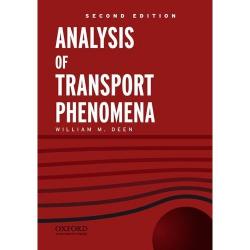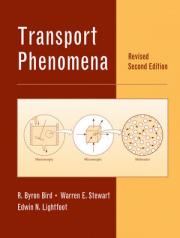Advanced Heat and Mass Transfer (Graduate)
Advanced Heat and Mass Transfer is a graduate level course, typically found as a required core course in most graduate programs. The following is the catalog description:
ChE441 - Advanced Heat and Mass Transfer: Introduction to the energy equation. Steady and transient heat transfer by conduction. Convective heat transfer. Energy transport in flowing media. Free convection. Conservation of species equation. Ficks law of binary diffusion. Mass transfer with simultaneous homogeneous or heterogeneous reaction. Multicomponent heat and mass transfer. Stefan-Maxwell equations for multicomponent diffusion. Simultaneous heat and mass transfer. Transport in electrolyte solutions. Special topics may include: membrane separation processes, drug delivery and controlled release, turbulent heat and mass transfer, boundary layer heat and mass transfer, and chemically reacting flows.
Professor Daniel Lepek is currently in the process of revising this course in an effort to strongly unify fluid mechanics, heat transfer, and mass transfer into a transport phenomena course. The following four topics provide the framework for the course and the desired student learning objectives:
1. Transport Phenomena Fundamentals - Students will be introduced to and develop a fundamental understanding of concepts such as conservation laws, constituitive equations, modes of transport, and diffusive fluxes and materials properties.
2. Modeling of Transport Phenomena - Students will be instructed on how to use transport phenomena fundamentals to translate a verbal or written engineering unit operation, process, or problem into a mathematical model.
3. Analysis of Transport Phenomena - Students will be introduced to analytical, numerical, and computational techniques that are required to solve mathematical transport phenomena models.
4. Validation, Verification, and Communication - Students will be required to validate and verify there results obtained from solving the transport phenomena models. Oral and written communication skills will be developed and refined through the use of required written reports and oral presentations.
The following file is the most current syllabus used for the course:
The following are the textbooks that will be used for the course in Spring 2013:
Analysis of Transport Phenomena (William Deen; Oxford University Press, 2nd Edition)

Transport Phenomena (Bird, Stewart, Lightfoot; John Wiley & Sons, 2nd Revised Edition)


